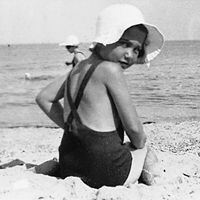
Bernard relates his experience as an American GI liberating the Gunskirchen concentration camp in Austria in May 1945. Bernard Bermack was born April 3, 1922, in St. Louis, Missouri. Bernard entered the United States Army on October 7, 1942. After receiving training as an artillery specialist, Bernard went overseas as a member of Patton’s Third Army. In May 1945, he was dispatched to serve in an aid organization, the United Nations Relief and Rehabilitation Administration (UNRRA).